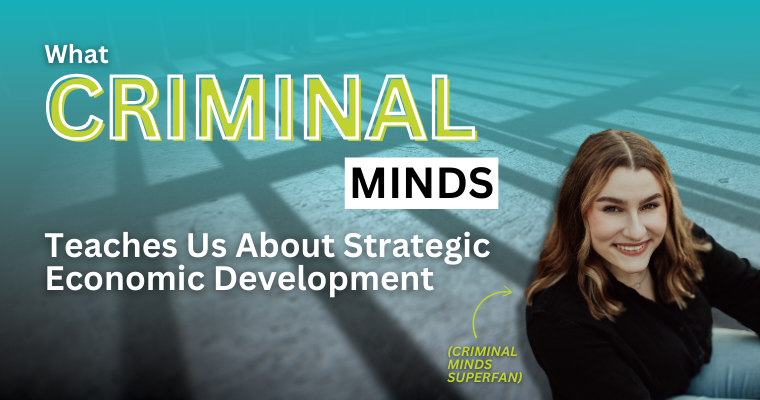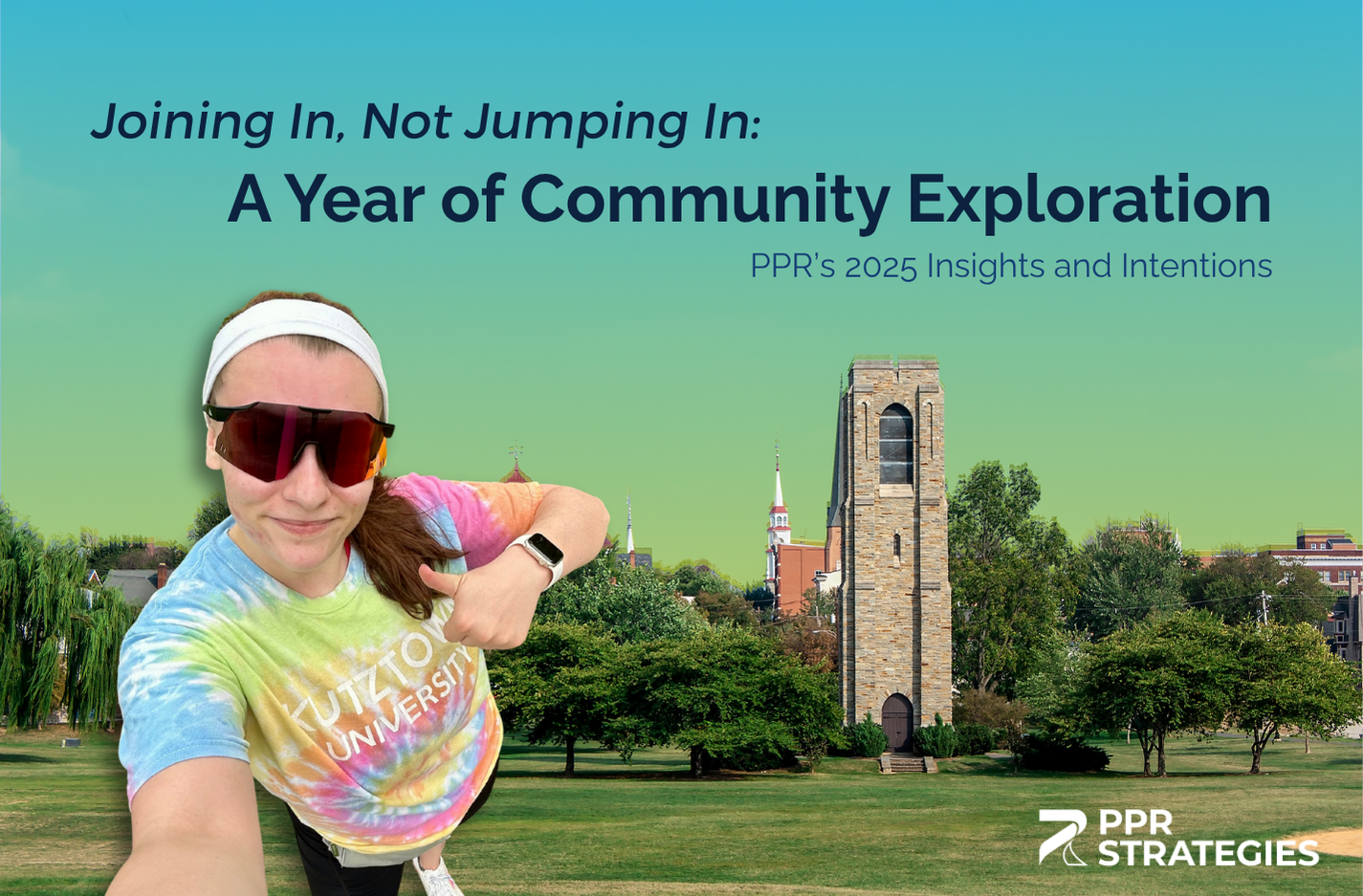
Not only is PPR Strategies’s Social Media Coordinator Kayla Sherry a content maven, but she’s also a diehard Criminal Minds fan.
In honor of Halloween, Kayla uses her favorite psycho-analysis thriller to help economic developers draw parallels between investigative techniques and community development strategies. Take it away, Kayla.
If you’re not familiar with Criminal Minds, here is your 15-second rundown: The show is about a team of FBI agents in the Behavioral Analysis Unit (BAU) that use specific “mind hunter” techniques to assess and profile criminals, predicting their next moves and ultimately catching them by utilizing each team member’s unique and impressive skill sets.
Why do criminals do what they do, and how does understanding their psychology help us catch and prosecute them? Similarly, why do communities react to economic, environmental, and political shifts the way they do, and how does that knowledge help us help them to pave a successful future?
During a recent (re)watch, I realized that one of the storylines brought the Criminal Minds team to Frederick, Maryland’s Fort Detrick. So close to PPR!
Already excited by this realistic blurred line between fiction and reality, my mind started thinking about how the practices in the show could apply to economic development, and it turns out they do!
Profiling Communities
Trying to profile something is to get your arms around a mass of information and understand it better. This act is something that economic developers and their organizations do all the time!
How often have you looked at your community and its businesses, education centers, programs, neighborhoods, and other assets to better understand its happenings? A million times? More?
“Profiling” your community includes analyzing data like demographics, industry trends, and employment patterns. With this information, EDOs can gain the insights they need to better understand a community’s unique strengths and weaknesses and tailor their strategies accordingly.
Understanding Root Causes
As community advocates, economic developers must look beyond the obvious surface-level details to understand the root causes of challenges—like poverty, unemployment, and inequality—within communities to create projects that inspire fundamental transformative changes.
Addressing these underlying issues is key to creating sustainable growth, just as preventing crime requires understanding and addressing deeper societal problems.
Predictive Analysis
Economic developers constantly look to the future and try to predict and support a viable path to success and thriving communities.
Just like the BAU uses past actions and behavioral likelihoods to predict criminals’ motives, EDOs use data to analyze trends, identify emerging industries, and help inform decision-making around future investments by predicting the trajectory of the community.
Targeted Strategies
The BAU (and especially my fav Dr. Spencer Reid) don’t just apply the same methods to each case—that would be a really boring show! They look for what makes each criminal unique and apply strategies specifically for their target.
EDOs do something similar by creating targeted and flexible economic strategies that respond to evolving community needs—just as the BAU adapts to each new case.
Collaboration and Partnerships
While the Criminal Minds team is full of literal geniuses, not even geniuses are islands. They rely on the group’s collective expertise and knowledge, drawing on each member’s unique experiences to solve the toughest cases.
Collaboration is key in capturing criminals and creating successful communities (I’m sure you didn’t think you’d hear that today). 😋
Outside the team, the BAU collaborates with local law enforcement, the public, and various other agencies to round out their resources for each case. This collaboration mirrors how public, private, and nonprofit partnerships often drive economic development success.
Community Resilience and Crisis Management
The Criminal Minds team is constantly thrown into a new crisis on a whim, but they are well-trained to manage any situation.
In the context of economic development, resilient communities can better recover from financial shocks (such as recessions, natural disasters, or major employer closures), drawing a parallel to how crisis management is essential both in law enforcement and in economic recovery.
Criminal Minds offers more than just thrilling entertainment—it provides useful analytic techniques and valuable lessons that can be used for economic development strategies. By applying this show’s principles mentioned above, economic developers can gain deeper insights into their communities and craft more effective, adaptable strategies.
Just as the Behavioral Analysis Unit team relies on data, teamwork, and flexibility to solve complex cases, economic development professionals can use these same approaches to foster sustainable growth and community resilience.
So, whether you’re catching criminals or catalyzing economic progress, the right tools and a collaborative mindset can make all the difference.








